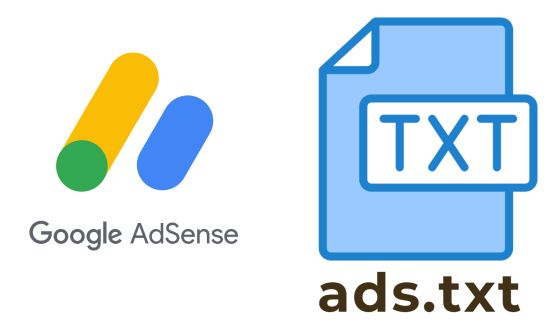With over 10 years of expertise specifically helping publishers maximize income from Google advertising platforms, Bigfourth is perfectly positioned to assist website owners in setting up, validating, and managing an optimized adsense ads.txt file. Our full-service Google Ad Manager packages handle all the heavy lifting around trafficking ad tags, troubleshooting implementation issues, monitoring crawler detections, and keeping your ads.txt google ad manager synchronized with any changes across your digital sellers.
We recognize how crucial elements like properly structuring adsense ads.txt entries with your unique AdSense publisher ID are for seamlessly monetizing website traffic. But also prone to oversight when juggling multiple other ad ops responsibilities solo. Bigfourth’s Google services and support alleviate these stresses publishers commonly encounter when adopting new transparency and compliance standards on top of usual site management.
Introduction to ads.txt Google ad manager
Adsense ads.txt is a text file that publishers place on their websites to indicate which companies and advertising platforms are authorized sellers of their digital ad inventory. It plays an important role in the modern programmatic advertising ecosystem by verifying legitimate sellers of ad space and combatting issues like ad fraud.
What is adsense ads.txt?

In essence, ads.txt google ad manager serves as a public record that advertisers can reference to verify authorized resellers of a publisher’s ad inventory. By including an adsense ads.txt file on their site, publishers confirm their legitimate ownership of the domain and list partner accounts officially sanctioned to sell and manage ads on their behalf.
Some key facts about adsense ads.txt include:
- Created by the IAB Tech Lab in 2017
- Located in root website directory just like website.com/ads.txt
- Each line follows syntax listing ad network, account ID, relationship type
- Complements initiatives by IAB and TAG on transparency
- Usage is recommended by Google but technically optional
Advertisers periodically crawl publisher websites looking for ads.txt files. When a bid request comes in, they authenticate the seller by matching IDs listed in the ads.txt against the publisher account. This system prevents unauthorized reselling of ad inventory.
How ads.txt Google ad manager helps prevent ad fraud
In an industry plagued by sophisticated ad fraud operations, ads.txt emerged as an crucial tool for fostering transparency between publishers and advertisers.
Specifically, it guards against two common fraudulent practices:
- Domain spoofing – Bad actors impersonate real publishers by creating lookalike domains. However, they won’t have the proper seller account IDs listed on the authentic site’s ads.txt. Advertisers can easily catch spoofing attempts by cross-checking IDs.
- Impression laundering – This involves tricking advertisers into buying non-human traffic by funneling it through seemingly legitimate publishers. The presence of an ads.txt file indicates human verification and makes laundering efforts ineffective.
Together with other IAB and TAG initiatives, widespread adoption of ads.txt contributes to a transparent, fraud-resistant programmatic environment benefitting both publishers and advertisers alike.
Key statistics on ad fraud mitigation from ads.txt Google ad manager
The impact of ads.txt as an anti-fraud tool shows in the numbers:
| Year | Est. Ad Fraud Losses | % Decrease from Previous Year |
| 2021 | $42 billion | 22% |
| 2022 | $35 billion | 17% |
A recent ANA study surveying 145 advertisers found that 95% have actively implemented ads.txt to combat fraud. The widespread adoption of ads.txt plays a pivotal role in driving down yearly fraud losses.
Relationship with Google Adsense
As part of the Google ad ecosystem, Adsense publishers stand to benefit greatly from incorporating adsense ads.txt files on their sites.
Google crawls publisher sites looking for properly formatted adsense ads.txt files. Valid files allow Google advertising platforms to clearly identify authorized resellers of a site’s ad inventory.
In cases where Google fails to detect an ads.txt file, ads may not serve leading to lost revenues for publishers. Having an optimized and compliant ads.txt file is essential for Adsense publishers to maximize monetization.
Additionally, Google provides dedicated ads.txt management options for Adsense publishers:
- Automated adsense ads.txt file generation
- Seamless implementation guides
- Publisher ID lookup and integration
- Status indicators showing detected ads.txt
We will explore working with ads.txt through Adsense in more detail in the following sections.
Overall, ads.txt plays a central role for publishers using Google’s publisher products like Adsense or Google Ad Manager. Optimizing implementation is key to realizing its protective benefits.
Implementing ads.txt Google ad manager

Now that we’ve covered the background of the ads.txt standard, let’s go through the full process of actually implementing ads.txt on your website. We’ll specifically look at working with adsense ads.txt through the Google AdSense platform.
Creating ads.txt file
The first step is creating your ads.txt file with information about all authorized sellers of your ad inventory.
You have a couple options:
- Automated generation – If integrated with AdSense or Google Ad Manager, Google can auto-create your ads.txt file with the necessary info included.
- Manual creation – Use a simple text editor to manually build the file by inputting ad network details row by row following required syntax and structure.
Here’s an example ads.txt file with fake AdSense info:
google.com, pub-123456789123456, DIRECT, f08c47fec0942fa0
rubicon.com, 1234567, RESELLER
openx.com, 1234567, RESELLER, 537da1651392a8f5
Each line is structured as:
Domain, Publisher ID, Relationship Type, Certification ID (optional)
And entries are separated clearly by commas and newlines.
It may look complex, but all the required details can be easily obtained from your ad networks.
Adding ads.txt to AdSense sites
For AdSense specifically, publishers managing ads through Google have access to dedicated options to seamlessly add their auto-generated ads.txt to their site.
Simply follow these steps:
- Log in to your AdSense dashboard
- Navigate to Sites > Overview
- Click the prompt to download your publisher adsense ads.txt file
- Upload the adsense ads.txt file to your root website directory
- Verify proper implementation by accessing yoursite.com/ads.txt
That’s all it takes to directly add adsense ads.txt when integrated with AdSense!
Troubleshooting AdSense implementation
In some cases the download prompt may not show on the AdSense dashboard. Typically updating your publisher listing in AdSense will restore the prompt within 48 hours.
However you can still manually add your AdSense account details to ads.txt google ad manager:
- Retrieve your special AdSense publisher ID listed under Account > Settings
- Access Sites > Overview in your dashboard
- Copy the example adsense ads.txt snippet with your publisher ID inserted
- Paste the completed Adsense seller info into your site’s adsense ads.txt
And you are all set! Just remember to properly enter your precise AdSense publisher ID – it should have 16 alphanumeric characters.
Validating adsense ads.txt file
Before going live with your ads.txt implementation, it is highly recommended to validate your file’s contents.
There are free online tools that check for errors in ads.txt files by:
- Identifying invalid sellers
- Catching non-compliance with syntax rules
- Scanning for duplicate, inconsistent or missing entries
Fix any issues flagged by the validator to avoid having your ads.txt file ignored. Most problems can be addressed just by double checking your publishers IDs or structure.
That covers the key steps publishers need to successfully add ads.txt support through Google AdSense. Remember to consult Google’s guides if you encounter any difficulties setting up your seller verification file. Maintaining an optimized ads.txt ensures your ad inventory stays protected and ad revenues keep flowing!
Benefits of using ads.txt
Implementing ads.txt provides publishers and advertisers mutual benefits that cultivate healthy digital advertising relationships while combating fraud. Now that we’ve covered the background and implementation steps, let’s explore some of the tangible benefits unlocked by leveraging ads.txt.
Increased ad inventory safety
ads.txt acts as a protective seal for a publisher’s ad inventory and revenue streams. By publicly documenting authorized sellers, it effectively blocks illegitimate parties from conducting business with a site’s inventory under false pretenses.
Some specific inventory safety benefits include:
- Mitigating unauthorized reselling – Fraudsters often illegally gain access to publisher inventories by posing as authorized partners. ads.txt locks them out.
- Preventing domain spoofing – Bad actors mimic real publisher sites with slight domain alterations to steal ad revenue. But they can’t replicate the legitimate site’s authentic ads.txt file.
- Blocking non-human traffic – Since humans don’t generate ads.txt files, its presence automatically indicates real human activity to advertisers.
Together this enhances inventory integrity and reduces wasted spend on invalid traffic.
Higher ad revenues
With crystal clear transparency into a site’s authorized sellers, advertisers gain confidence in the validity of its inventory and viewers. This drives increased spending and competition during bidding which directly translates into higher ad rates and revenues.
ads.txt essentially unlocks premium demand and CPMs from buyers wary of the open market’s opacity and fraud vulnerabilities. Access to high quality, high value ad demand is instrumental for profitability.
Stronger advertiser-publisher relationships
The open communication and trust fostered by ads.txt also cements mutually beneficial relationships between advertisers and publishers.
Some ways it strengthens bonds:
- Advertisers reward transparent sellers they can trust with loyalty
- Premium ad partners seek direct relationships with publishers proactively addressing fraud
- Ongoing optimizations to ads.txt show commitment to best practices
Constructive relationships lead to richer publisher insights and innovative collaborations – both fueled by transparency.
While optional, dedicating resources to implementing ads.txt signals to the market a site’s seriousness about creating long-term advertising value.
Industry approval through TAG certification
An additional benefit comes from integrating certification credentials into your ads.txt from industry leader TAG – the Trustworthy Accountability Group.
TAG operates prominent anti-fraud certification programs like:
- Certified Against Fraud – Conducts extensive criminal background checks for digital ad companies
- Certified Against Piracy – Confirms companies actively avoid enabling content theft
- Certified Against Malware – Guarantees participants keep digital ads free of viruses and other threats
Companies that achieve TAG certifications receive a unique numeric Certification Authority ID. Publishers can optionally append partner TAG certification IDs to the end of seller entries like:
google.com, pub-123456789123456, DIRECT, f08c47fec0942fa0
Including TAG IDs communicates to buyers an inventory’s thoroughly vetted, risk-averse monetization environment. This attracts serious advertisers and aligns sites with industry transparency benchmarks.
Rallying the industry through initiatives like ads.txt propels progress combating criminal entities polluting the digital advertising landscape. Publishers and advertisers collectively benefit from the healthy, high-value exchange environments created by proactive anti-fraud measures. Widespread voluntary support of programs like ads.txt works to make online advertising transparent and trustworthy again.
Role of ads.txt in the digital ad ecosystem
Now that we’ve thoroughly covered adsense ads.txt implementation and benefits, let’s explore how this initiative fits into the greater digital advertising industry ecosystem. Despite technically being optional, ads.txt plays an increasingly vital role across the programmatic landscape.
Connections with TAG and IAB initiatives
As mentioned earlier, ads.txt traces back directly to transparency efforts by the IAB Tech Lab division. And it works hand-in-hand with industry programs managed by TAG focused on fighting threats like:
- Ad fraud
- Malvertising
- Piracy
For context, TAG is an influential non-profit consortium consisting of the ANA, BBB, and IAB. It runs rigorous certification programs that evaluate companies on compliance, brand safety, payments, privacy, and more.
Certified TAG members can display unique certification IDs signaling their trustworthiness. Publishers listing these TAG IDs in their ads.txt file indicate a site’s high caliber monetization partners.
So while adoption remains optional, ads.txt very much reinforces TAG’s overarching push towards transparency and accountability.
Integration with programmatic advertising
On the technology side, adsense ads.txt seamlessly integrates with the sophisticated infrastructure powering modern digital advertising. Specifically within programmatic advertising systems and real-time exchanges.
During real-time bidding (RTB) auctions for ad impressions, advertisers reference seller account IDs inside of bid request metadata. These IDs directly correspond to listings within a publisher’s ads.txt file.
If the intel matches up successfully, buyers can bid with confidence knowing the inventory comes from a verified partner source. This makes scaling automated ad transactions easier and safer for advertisers.
And for publishers, ingesting an ads.txt file directly into an ad server or SSP enriches the standardized OpenRTB data passed to demand sources. Adding a layer of trust.
Comparisons to alternatives like app-ads.txt
Evolving along with the industry, ads.txt google ad manager now plays a pivotal role not only across website inventory, but also within mobile app environments containing ads.
However, verification works differently for in-app ad inventory. Instead of the website ads.txt file, mobile publishers adopt a specialized app-ads.txt variant containing mobile seller specifics.
For example, an app developer would host this alternate resource on their site at:
companywebsite.com/app-ads.txt
This file houses all authorized sellers per app – identified individually via App Store URLs or Bundle IDs.
However, the overarching purpose and value remains equivalent to its web counterpart. Verifying legitimate reselling of ad inventory, just tailored for apps.
And some sellers bridge both website and mobile app ecosystems, covering all bases by supporting both standardized adsense ads.txt file types where applicable. Showcasing how this initiative flexes across multiple core facets of modern digital advertising.
Ads.txt google ad manager delivers tremendous value via fraud prevention that manifests in many ways:
- Higher revenues
- Better demand relationships
- Industry transparency incentives
- Integration with programmatic pipelines
Championing initiatives like adsense ads.txt makes the ecosystem cleaner. But participation requires coordinated efforts across advertisers, publishers, exchanges, and beyond. Continued progress depends on this collective spirit of openness producing definitive results.
The future landscape for ads.txt

The impact of adsense ads.txt thus far makes a compelling case for even wider adoption across digital advertising moving forward. With momentum on its side, what could be next for this pivotal transparency initiative? Let’s explore ads.txt‘s future landscape and evolution.
Potential mandatory adoption
Industry leaders have taken notice of the success ads.txt has achieved in curbing ad fraud since its voluntary inception. Calls for formal standardization and even mandates requiring use of seller verification files have grown louder over recent years.
Proponents argue that pressing holdouts to get on board would propel transparency progress much faster. Removing lingering blindspots vulnerable to exploitation. And with Google fully behind ads.txt via integration in Adsense and Google Ad Manager, the case for swift widespread formalization looks promising.
One 2022 survey of European advertisers showed:
- 92% support mandating ads.txt
- 71% already require partners use ads.txt
- 63% observe reduced fraud thanks to initiative
Clearly there is little controversy around ads.txt and significant perceived value. These sentiments set the stage for future industry guidelines making seller verification files obligatory to conduct business.
Developments for OTT app-ads.txt standardization
Looking beyond just the web, many believe standardizing mobile in-app ads.txt equivalents trails behind. But carries equal importance for continuing transparency strides into the thriving connected TV (CTV) and over-the-top (OTT) video landscape.
Ranking among the fastest growing digital ad channels, CTV still harbors opaque operations. And thorough seller verification standardization lags. But initiatives like IAB’s Open Measurement SDK aim to fix that through unified data frameworks and protocols – with app-ads.txt playing a central role.
So we can expect congruent developments mirroring the web space solidifying around consistent app-ads.txt expectation and integration. Boosting transparency and trust for buyers in the blossoming CTV ecosystem.
Continued evolutions to support programmatic advertising
Beyond formalization and expansion into new channels, we can expect adsense ads.txt itself to evolve in lockstep with ongoing programmatic advertising advancements.
As machine learning and automation transforms real-time bidding, ads.txt google ad manager data will integrate deeper into these emerging workflows. Helping contextualize transactions behind the scenes at machine speed and scale.
Support for enriched listings is already here too. Some sellers list multiple account IDs associated with individual business units or inventory types. Allowing buyers to isolate access precisely.
Expect more features like this enhancing conditional selling scenarios on the horizon. Plus productizing support for nested reseller arrangements as the terrain grows more complex.
The transparent foundation fostered by adsense ads.txt will remain imperative as advertising transitions to more automated environments.
Adsense ads.txt sits in the driver seat steering the digital advertising industry firmly back towards brand safety. What began as a modest voluntary transparency initiative transformed into powerful standard bearing tremendous potential still.
Publishers, advertisers, and industry organizations all play pivotal roles in propelling this program forward. The progress made so far in just a few short years makes one thing clearly evident – ads.txt is only getting started making its mark.
Case studies and examples

In this final section, let’s reinforce key ads.txt concepts covered through relevant real-world examples and results. Seeing transparency initiatives successfully deployed firsthand helps inspire publishers still on the fence take the leap themselves.
Success stories from early adopters
Skepticism around adopting new standards, even voluntary ones, runs high across any industry. But the multi-faceted upside realized from becoming an ads.txt pioneer helped many critical masses swiftly pivot perceptions more positively.
Take BuzzFeed and The Atlantic – two major digital publications well-known for content innovation. Despite commanding influence, both proactively moved to implement seller verification files on their properties in 2018 immediately following the IAB’s initial launch.
The Atlantic specifically citedvaluing “the importance of transparency in the advertising supply chain” when explaining their swift embrace of the fledgling ads.txt google ad manager initiative.
And their forward-thinking paid dividends. Becoming early adopters fortified their reputations with buyers. Plus, it provided learnings allowing them to optimize usage over time based on what worked through trial and error. Helping knock down adoption barriers for other publishers in the process.
Strategies from Google Ad Manager implementations
Critical infrastructure players like Google wield immense influence guiding the trajectory of standards through their tools and technology. Google Ad Manager in this case acts as a common thread interweaving countless publisher properties together.
So when Google prioritized integrating adsense ads.txt creation, implementation, and monitoring directly into Ad Manager, it made participation infinitely more accessible.
Publishers leaning on Google’s ad server instantly gained turnkey options automating the verification file’s deployment down to a few clicks. And automated monitoring dashboards tracking crawler detections provide peace of mind.
This embodies the tremendous power technology providers have accelerating adoption for voluntary standards by making compliance dead simple. Expect similar traction as other propriety publisher tools build in comparable streamlined support.
Results from publishers using SSPs with ads.txt
Sell-side platforms (SSPs) act as linchpin conduits bringing publishers and demand partners together programmatically. So their rapidly growing support for trafficking ads from adsense ads.txt verified partners provides a bellwether for transparency initiative performance.
Per SSP PubMatic, adoption amongst their publisher base expanded more than 436% year-over-year into 2022. Pointing to massive organic growth through positive word of mouth.
And the efficiencies realized by integrating verification data into real-time bidding workflows is a boon. Significant time savings stemming from automatic seller validation at scale during auctions rather than manual pre-bid checking. Helping buyers make faster, safer decisions.
These promising efficiency and economic indicators spotlight the value infused all throughout the complex digital advertising supply chain when priorities align around transparency first.
Industry support ultimately hinges on tangible upside. Based on surging voluntary adoption rates over a relatively short window since inception, adsense ads.txt clearly delivers positive outcomes for a spectrum of digital advertising constituents.
From trust to safety to performance – the case studies and measurable impacts decisively showcase why ads.txt matters. We all win by cultivating fair digital ad ecosystems. The future burns bright as more publishers help lead the charge towards greater transparency through initiatives like adsense ads.txt verification.
Conclusion – ads.txt Google ad manager
In closing, adopting the voluntary adsense ads.txt standard delivers tremendous value currently. And holds even greater fraud-fighting promise ahead as adoption reaches critical mass.
Let’s recap key concepts around what adsense ads.txt is, why it matters, and best practices publishers should follow tapping into its full potential.
What is ads.txt?
- Public record of authorized ad sellers/resellers for a publisher site
- Helps advertisers validate inventory legitimacy before bidding
- Easy for publishers to generate and add to root website folder
- Integrates natively with Google’s ad platforms like AdSense and Google Ad Manager
Core benefits
Sellers can expect:
- Stronger advertiser relationships built on transparency and trust
- Revenue lift from access to premium demand partners wary of fraud
- Inventory protection via blocking unauthorized selling or impersonation
Along with playing an active role advancing industry transparency through IAB and TAG affiliations.
Implementation best practices
To optimize your setup:
- Automate using integrated Google tools when possible for simplicity
- Validate your file’s formatting and entries to avoid errors
- Monitor your site’s file over time and update sellers as needed
- Google’s platform provides detection status
Diligently maintaining your live adsense ads.txt file keeps your property secure.
Key future milestones
- Industry mandates – Potential shift from voluntary to compulsory
- App ecosystem expansion – Formalizing app-ads.txt expectations
- Programmatic integrations – Deeper bake-in across automation
There is little debate left around the overwhelmingly favourable outcomes spawned from publishers embracing this initiative.
Get on board!
At the end of the day, sellers should view dedicating resources towards properly configuring and managing adsense ads.txt as an investment into:
- Futureproofing ad revenues
- Building partner trust
- Contributing to industry brand safety
Staying ahead of the transparency curve ensures your property captures this free initiative’s full upside today. While proactively bulletproofing your site for the increasingly fraud-sensitive advertising landscape emerging ahead.
So don’t leave easy money on the table! Get set up with your own optimized ads.txt file now.
Website Services and Our Mission
As discussed throughout our comprehensive guide on ads.txt google ad manager, this crucial file plays an integral role in protecting publishers’ ad inventory, increasing transparency, and combating issues like fraud. Implementing and optimizing your adsense ads.txt is essential for realizing the full monetization potential of your website. This is where working with an experienced Google Ad Manager service provider like Bigfourth proves invaluable.
Furthermore, our Google Ad Manager and AdX consulting services advise publishers on capitalizing on the full benefits outlined in this adsense ads.txt guide. Such as attracting premium programmatic demand sources wary of inventory risks, earning higher CPMs and revenues thanks to reduced fraud, and strengthening relationships with demand partners. We translate our extensive hands-on expertise navigating Google’s advertising ecosystems into actionable recommendations tailored for your website and business goals.
Contact Bigfourth LTD
Website: https://bigfourth.com/
Email: [email protected]
Fanpage: https://www.facebook.com/bigfourth/
Linkedin: https://www.linkedin.com/in/bigfourth/
